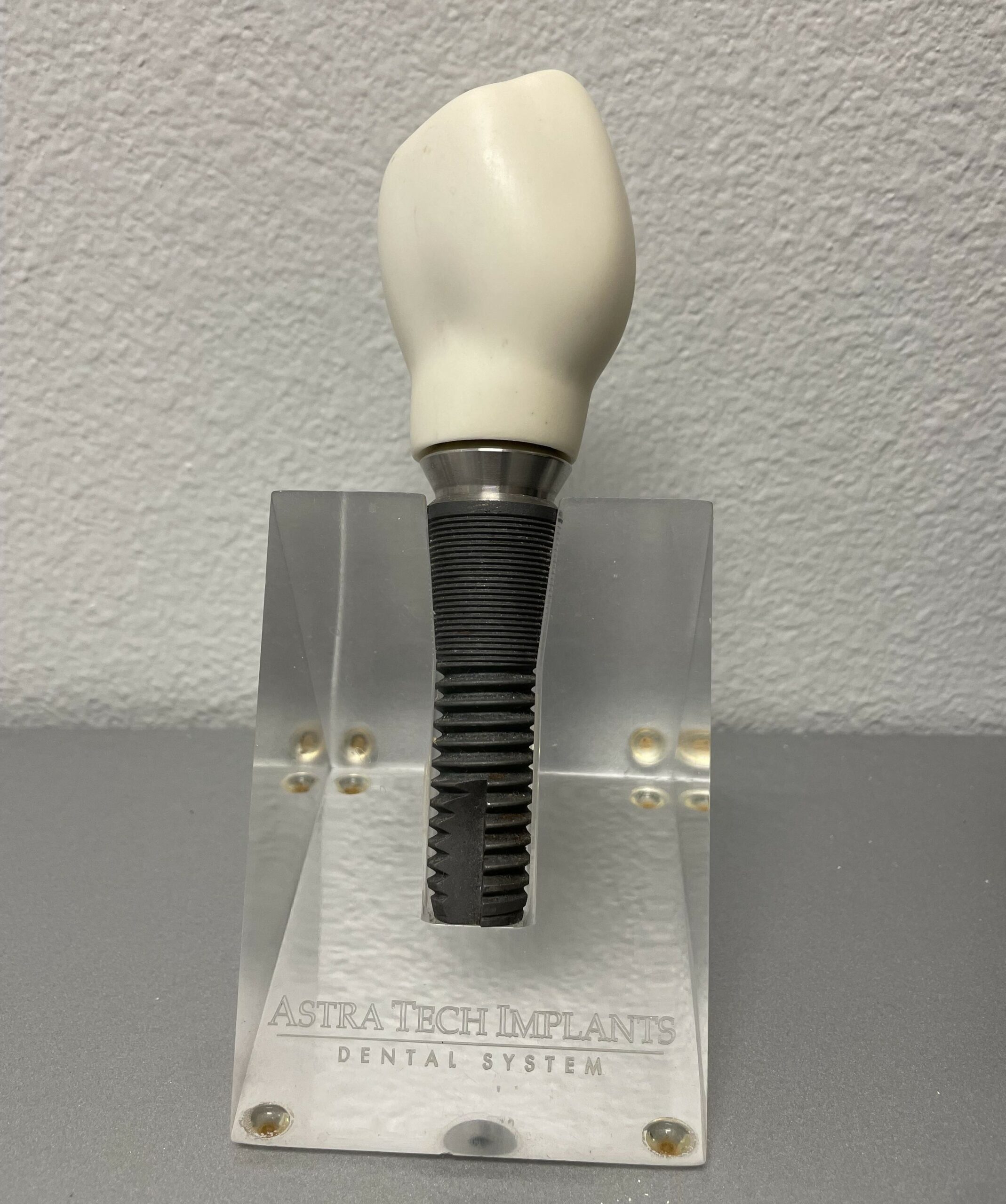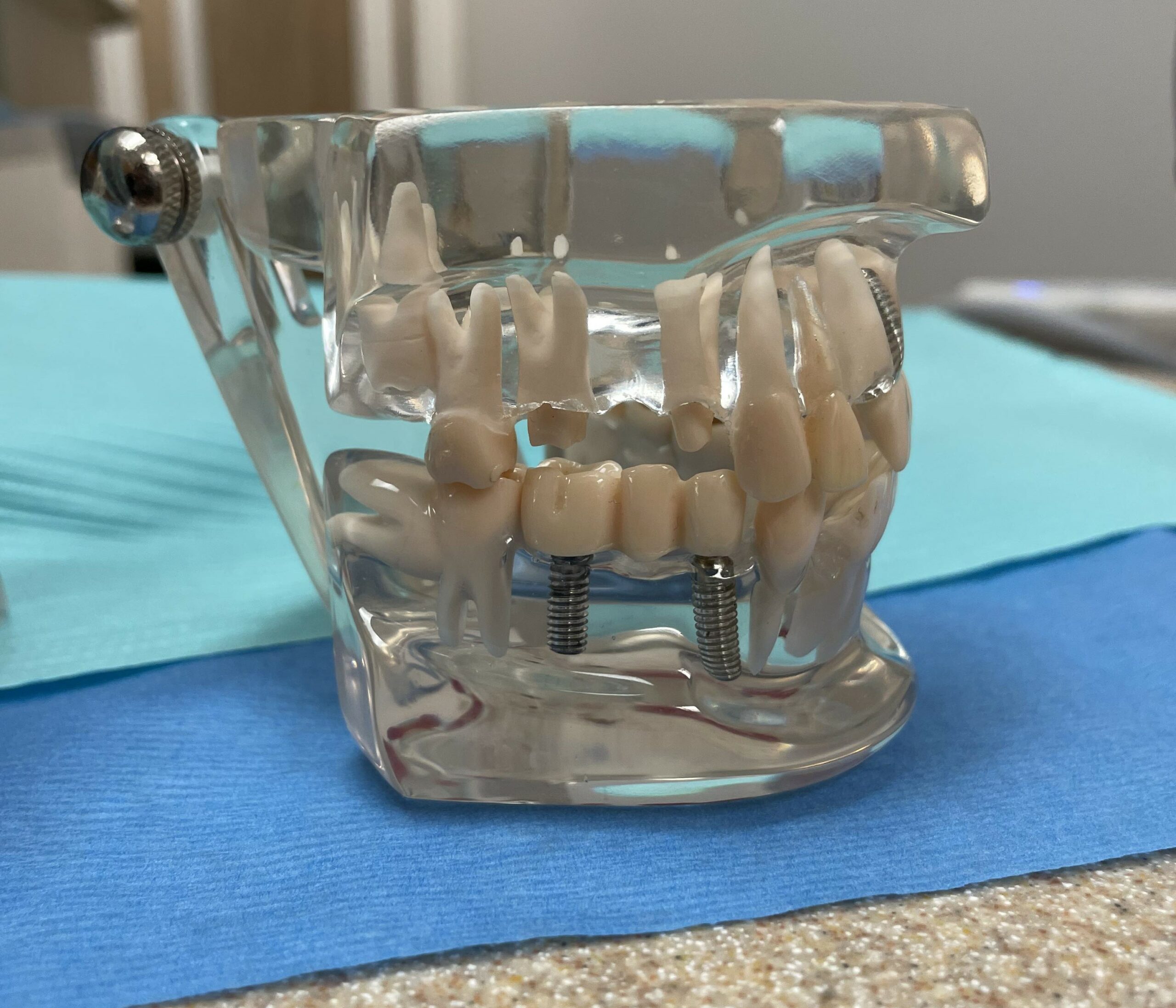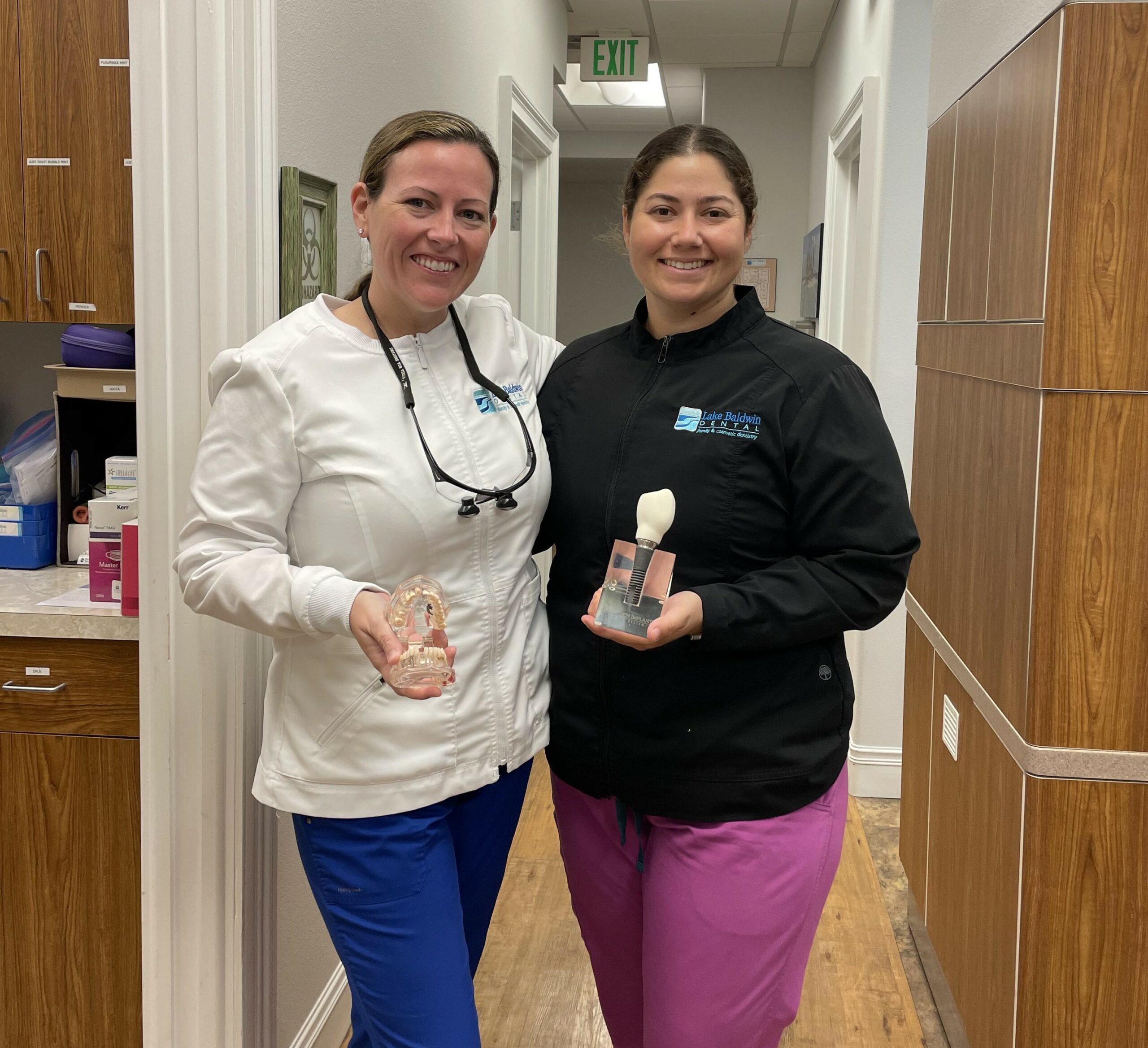In an ideal world, all our patients would keep all their teeth for their entire lives. Unfortunately, that’s often not the case. Any number of problems can lead to tooth loss.
Gum disease can lead to loose teeth that eventually fall out or need to be removed. Severe decay can make teeth unsalvageable. Even people with perfect oral health can end up losing teeth. All it takes is one wrong bite on a surprise unpopped popcorn kernel for a tooth to break in a way that we can’t fix.
Missing teeth can start a cascade of problems. The surrounding teeth will start to shift, and your bite can become uneven. If teeth go unreplaced, the bone that used to support them will start to shrink, causing jaw strain and other health problems.
Missing teeth also make it hard to eat, which can lead to nutritional problems down the road. Perhaps most significantly, missing teeth can seriously impact your confidence and make you want to hide your smile.
Fortunately, there is a way to replace your missing teeth and restore your smile with strong, stable replacements that look and feel just like your own healthy natural teeth. Let’s take a look at how dental implants can rebuild your full set of teeth!
What Are Dental Implants?

Dental implants replace missing teeth using three parts:
- A post, which replaces the root of a tooth. This is what gets surgically implanted into the bone tissue.
- A restoration, which is the visible top portion that you’ll use for chewing. It can be a single crown or several connected crowns in one piece, depending on what type of implants you need.
- An abutment, which connects the post to the restoration.
Because dental implants sit in the bone tissue, they have the strength and stability of natural teeth. That means you can eat all your favorite foods with dental implants, without restrictions.
Dental implants also stimulate the bone tissue in the same way as natural teeth. That means you won’t have to worry about losing bone volume and your dental implants will protect your jaw joint and maintain the youthful contours of your face.
Dental Implant Options
Dental implants are a versatile way to replace teeth. They can be completely customized to replace any number of teeth. A few of the most common options are:
- Single Dental Implants – If you need a single tooth replaced, or you have individual teeth missing in separate areas of the mouth, a single dental implant can perfectly mimic a natural tooth with a strong replacement that blends seamlessly with the rest of your smile.
- Dental Implant Bridges – If you’re missing several teeth in one area, we craft a bridge with several restorations fused together. This can be anchored onto one, two, or a few posts without needing individual posts for each missing tooth.

- Snap-On Dentures – If you’re looking for a more functional alternative to your traditional dentures, an implant supported denture can be crafted to snap onto a few dental implants. In some cases, we may be able to modify your current denture to accommodate dental implants, so it stays securely in place without adhesives.
- Full Mouth Dental Implants – This is as close as it gets to fully replacing an entire set of healthy natural teeth. Full mouth dental implants are basically an implant bridge that goes all the way around the arch. They’re typically anchored onto four to six posts. It can be hard to clean underneath full mouth dental implants, which can only be removed by a dentist at your regular maintenance and check-up appointments, so they’re not right for everyone.
How Do I Know If Dental Implants Are Right for Me?
The good news is that today’s technology makes it possible for almost any patient to get dental implants, as long as your health is stable enough to handle the surgery.
Of course, you need to have enough healthy bone structure to support your implants. But even if you’ve lost bone volume, we may be able to rebuild it with bone grafting. Or in some cases, your surgeon may be able to use alternative sites for your implants.
There are a few medical conditions that can interfere with healing, which may make other treatments more appropriate for you. For example, osteoporosis, certain medications, and diabetes could complicate your case.
Pregnant patients should wait until they are no longer pregnant before having teeth replaced with dental implants.
If your child is missing permanent teeth, they should wait until young adulthood to have dental implants placed.
What Is the Process of Getting Dental Implants?
Your first step toward rebuilding your smile with dental implants is a consultation. As with every treatment here at Lake Baldwin Dental, we want to fully understand how your dental health is affecting your life. What led to your tooth loss? How has that impacted you emotionally or psychologically? What goals do you have for your smile?

We often incorporate dental implants into smile makeovers. This is a great way to not only replace your missing teeth with strong, functional prostheses, but also make sure your entire smile is as beautiful as possible. We want you to feel great greeting the world with your full smile!
We’ll give you all your treatment options and fully explain the pros and cons of each so you can make oral health decisions with complete confidence.
If dental implants are right for you, we partner with surgical specialists in Orlando, FL and Winter Park, FL who will place your implant posts with precision for the best long-term outcome. Your surgeon will make sure you’re completely comfortable throughout your procedure with the right sedation option for your needs. You’ll wear temporary restorations while your implants heal for the next several months.
Then, we’ll test your posts to be sure they’re fully integrated with the bone tissue. If everything looks good, we’ll take new scans and impressions so our state-of-the-art lab can custom craft your restorations.
You’ll return for one final appointment so we can seat your final restorations and celebrate your new smile together! Keep smiling, Orlando!

